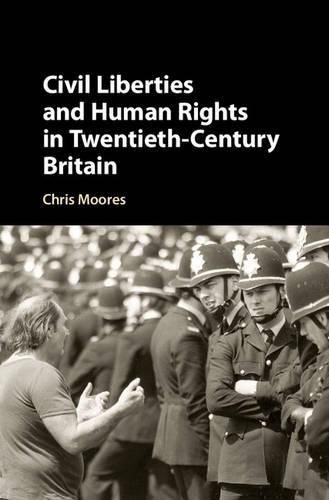Readings Newsletter
Become a Readings Member to make your shopping experience even easier.
Sign in or sign up for free!
You’re not far away from qualifying for FREE standard shipping within Australia
You’ve qualified for FREE standard shipping within Australia
The cart is loading…






The National Council for Civil Liberties (NCCL) was formed in the 1930s against a backdrop of fascism and ‘popular front’ movements. In this volatile political atmosphere, the aim of the NCCL was to ensure that civil liberties were a central component of political discourse. Chris Moores’s new study shows how the NCCL - now Liberty - had to balance the interests of extremist allies with the desire to become a respectable force campaigning for human rights and civil liberties. From new social movements of the 1960s and 1970s to the formation of the Human Rights Act in 1998, this study traces the NCCL’s development over the last eighty years. It enables us to observe shifts and continuities in forms of political mobilisation throughout the twentieth century, changes in discourse about extensions and retreats of freedoms, as well as the theoretical conceptualisation and practical protection of rights and liberties.
$9.00 standard shipping within Australia
FREE standard shipping within Australia for orders over $100.00
Express & International shipping calculated at checkout
The National Council for Civil Liberties (NCCL) was formed in the 1930s against a backdrop of fascism and ‘popular front’ movements. In this volatile political atmosphere, the aim of the NCCL was to ensure that civil liberties were a central component of political discourse. Chris Moores’s new study shows how the NCCL - now Liberty - had to balance the interests of extremist allies with the desire to become a respectable force campaigning for human rights and civil liberties. From new social movements of the 1960s and 1970s to the formation of the Human Rights Act in 1998, this study traces the NCCL’s development over the last eighty years. It enables us to observe shifts and continuities in forms of political mobilisation throughout the twentieth century, changes in discourse about extensions and retreats of freedoms, as well as the theoretical conceptualisation and practical protection of rights and liberties.